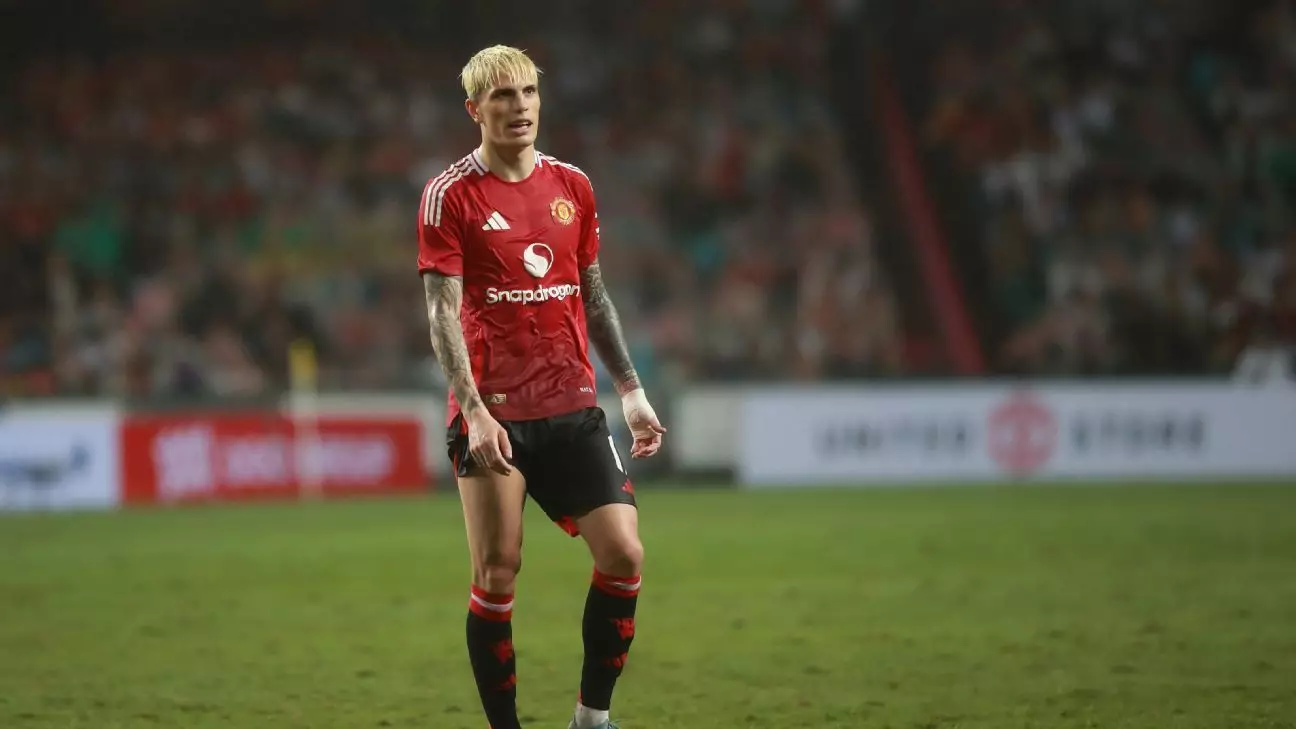Manchester United’s current transfer saga reflects a club in flux, one that refuses to be bound by traditional timelines or rigid plans. The club’s management, led by the innovative Ruben Amorim, demonstrates a willingness to explore the grey areas of player reintegration and squad building. Rather than succumbing to the pressure of finalized deals, United seems to be intentionally maintaining a flexible stance, which could be a masterstroke or a blunder—only time will tell.
Amorim’s approach, openly stating that players who are currently sidelined still remain part of the club’s future plans, indicates a shift towards patience and openness. This isn’t a club rushing for immediate signings or desperate to offload problematic players; instead, it underscores a calculated hope that the right deals will materialize closer to the deadline. Such a strategy has its pitfalls—delaying decisions can lead to last-minute chaos—but also offers the advantage of keeping the squad intact, ready to seize unexpected opportunities.
What separates this from traditional transfer tactics is the confidence and clarity Amorim exudes. By emphasizing that players like Garnacho, Antony, Sancho, and Malacia are not permanently banished, he plants the seed that Manchester United remains their club until proven otherwise. This approach signals both flexibility and stability. It hints at a broader philosophy—instead of acquiring new players at the expense of internal talent, the club may benefit more by nurturing what they already have, provided the right opportunities come along.
Trust in Youth and Existing Talent: A Calculated Bet
One of the most striking facets of this narrative is the implicit faith Amorim expresses in his current squad and upcoming signings. The decision to potentially start the season without a new No. 9 speaks volumes. It reflects an understanding that sometimes the best growth happens from within, and that patience can be a tactical virtue.
The emphasis on nurturing connections between emerging talents like Josh Zirkzee and Rasmus Hojlund reveals a long-term vision—one that is about building a cohesive unit rather than chasing quick fixes. The arrival of new signings like Matheus Cunha and Bryan Mbeumo, who explicitly chose Manchester United despite other alluring options such as Champions League clubs, signals an awakening of ambition and confidence. Amorim’s assertion that he’s “happy” to start with the current squad demonstrates a resilient optimism rooted in trust and strategic patience—values that can sometimes be overshadowed by the frantic nature of modern football.
Furthermore, this mindset might be a crucial turning point. Rather than succumbing to the fixation of bringing in high-profile players before the season begins, United seems more interested in crafting a squad that’s cohesive, motivated, and ready to fight for spots. The focus appears to be less on marquee signings and more on building genuine internal competition—an approach that could foster unity and resilience over the long haul.
The Psychological Edge: Embracing Competition and Uncertainty
Amorim’s openness about ongoing battles for starting spots and the necessity for players to prove themselves in the fight for the World Cup spot adds an invigorating psychological element. It turns the squad into a battleground of aspiration, with each player aware that their opportunities depend on performance and determination.
This isn’t a passive approach. It implies a mentality shift that champions self-reliance and competitiveness. Players like Cunha and Mbeumo, who chose United despite other lucrative options, are seen not just as reinforcements but as symbols of the club’s renewed ambition and faith in its own project. This faith is not blind; it’s underpinned by strategic patience, trust in the developmental process, and a recognition that the season’s outcome will ultimately depend on collective effort and internal momentum.
The club’s deliberate choice to operate on a timeline that extends closer to the transfer deadline suggests a different kind of confidence—one that relies on the unpredictability of football’s transfer landscape. It challenges the conventional wisdom that rapid signings are essential, instead trusting that the squad’s internal dynamics and the right moves at the right time will produce a more resilient and ultimately successful team.
Manchester United’s approach, as articulated by Amorim, underscores a paradigm shift: embracing uncertainty, fostering internal competition, and trusting the development of current talents. It’s a gamble—one that tests patience and strategic foresight in an era where instant gratification often dominates. But if executed with conviction, it can lead to a harmonious squad, motivated by shared purpose rather than the pressure of splashy signings.
This strategy might be controversial, but it is undeniably ambitious. It places faith in the club’s culture, in its existing players, and in the power of patience to unlock potential. As the transfer deadline looms, United’s true test will be whether this calculated risk culminates in a team poised for both immediate impact and sustained growth.


Leave a Reply